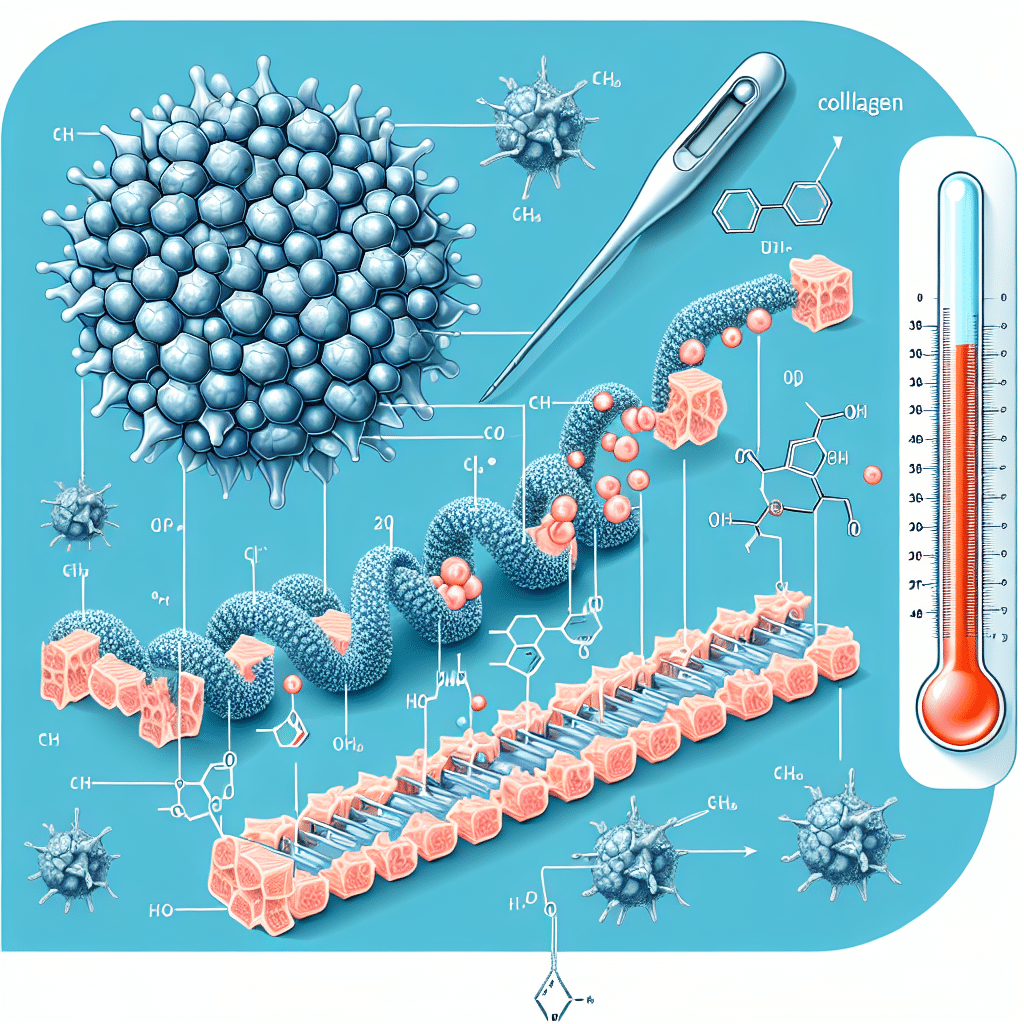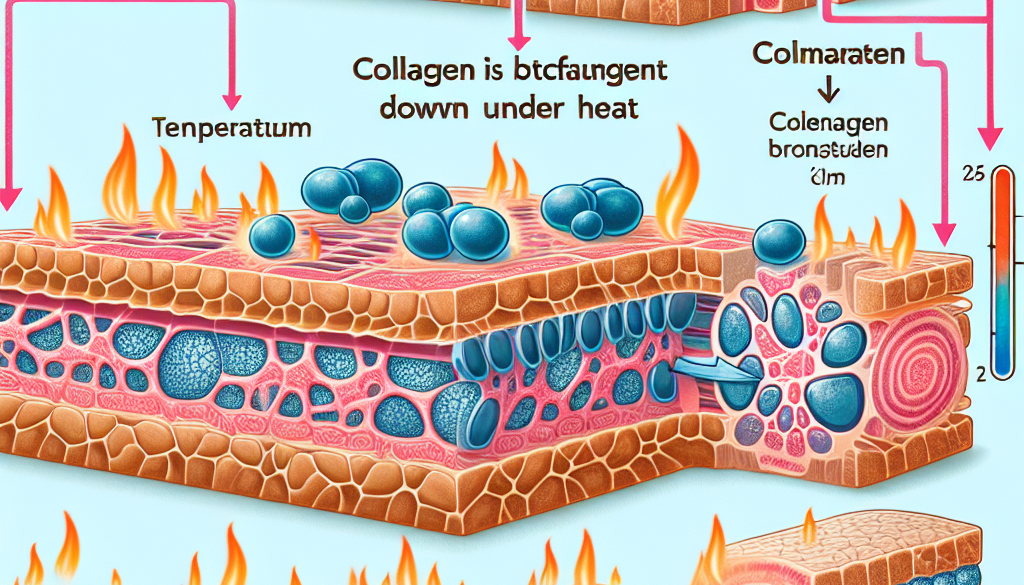What Temp Does Collagen Break Down? Cooking Science
-
Table of Contents
Cooking Science: Understanding Collagen Breakdown Temperatures

Collagen is a protein that plays a crucial role in the texture and structure of meats and other food products. Understanding the temperature at which collagen breaks down is essential for chefs, food scientists, and culinary enthusiasts who aim to achieve the perfect tenderness and flavor in their dishes. This article delves into the science behind collagen breakdown, its implications in cooking, and how it affects the culinary experience.
The Role of Collagen in Cooking
Collagen is the most abundant protein in the animal kingdom, providing structure and strength to connective tissues. In the culinary world, collagen’s presence in meat significantly influences its texture. Tough cuts of meat, such as brisket or shank, are rich in collagen, which can make them challenging to cook properly. However, when collagen is broken down through the cooking process, it transforms into gelatin, contributing to the meat’s succulence and mouthfeel.
Temperature and Time: The Keys to Collagen Breakdown
The breakdown of collagen is not solely dependent on temperature; time also plays a vital role. The process of converting collagen into gelatin is a slow one, and it typically occurs over a range of temperatures. Here’s a closer look at the science:
- Low-Temperature Cooking: Collagen begins to slowly break down at temperatures as low as 160°F (71°C). This process accelerates as the temperature increases, but it requires prolonged cooking times to achieve the desired tenderness.
- Optimal Temperature Range: The most efficient breakdown of collagen occurs between 180°F (82°C) and 200°F (93°C). Within this range, the triple helix structure of collagen unwinds, and water is absorbed, converting it into gelatin.
- High-Temperature Cooking: While high temperatures can speed up the breakdown of collagen, they can also cause the meat to dry out and toughen if not managed correctly. Moist cooking methods, such as braising or stewing, are ideal for maintaining tenderness at higher temperatures.
It’s important to note that the thickness of the meat, the amount of collagen present, and the cooking method all influence the time required to break down collagen effectively.
Practical Applications in Cooking
Understanding the relationship between collagen breakdown and cooking temperatures allows chefs to manipulate the texture of meat. Here are some practical applications:
- Braising: This technique involves cooking meat slowly in a liquid at low temperatures, which is ideal for breaking down collagen without drying out the meat.
- Smoking: Smoking meats at low temperatures over an extended period is another method that facilitates the transformation of collagen into gelatin, resulting in tender, flavorful dishes.
- Sous Vide: Sous vide cooking allows for precise temperature control, enabling the breakdown of collagen at lower temperatures over longer periods, ensuring even tenderness and moisture retention.
Case Studies and Examples
Several studies have examined the effects of temperature on collagen breakdown. For instance, research on the sous vide cooking of beef showed that cooking at 131°F (55°C) for 24 hours resulted in a significant breakdown of collagen, yielding a tender texture. Similarly, traditional barbecue techniques often involve smoking meats at low temperatures for many hours to achieve the characteristic tenderness and flavor associated with slow-cooked barbecue.
Conclusion: The Art of Perfectly Cooked Meat
In conclusion, the breakdown of collagen is a critical factor in achieving perfectly cooked meat. By understanding the temperatures at which collagen breaks down and the importance of cooking time, culinary professionals and enthusiasts can enhance the texture and flavor of their dishes. Whether it’s through braising, smoking, or sous vide, mastering the science of collagen breakdown is an essential skill in the art of cooking.
Discover ETChem’s Protein Products
If you’re interested in incorporating high-quality collagen into your culinary creations or products, ETChem offers a range of protein products that can meet your needs. Their extensive selection includes marine collagen, fish collagen, bovine collagen, and more, all characterized by their neutral taste and instant solubility. Whether you’re in the food and beverage industry or developing dietary supplements, ETChem’s collagens can provide the quality and versatility you require.
About ETChem:
ETChem, a reputable Chinese Collagen factory manufacturer and supplier, is renowned for producing, stocking, exporting, and delivering the highest quality collagens. They include marine collagen, fish collagen, bovine collagen, chicken collagen, type I collagen, type II collagen and type III collagen etc. Their offerings, characterized by a neutral taste, instant solubility attributes, cater to a diverse range of industries. They serve nutraceutical, pharmaceutical, cosmeceutical, veterinary, as well as food and beverage finished product distributors, traders, and manufacturers across Europe, USA, Canada, Australia, Thailand, Japan, Korea, Brazil, and Chile, among others.
ETChem specialization includes exporting and delivering tailor-made collagen powder and finished collagen nutritional supplements. Their extensive product range covers sectors like Food and Beverage, Sports Nutrition, Weight Management, Dietary Supplements, Health and Wellness Products, ensuring comprehensive solutions to meet all your protein needs.
As a trusted company by leading global food and beverage brands and Fortune 500 companies, ETChem reinforces China’s reputation in the global arena. For more information or to sample their products, please contact them and email karen(at)et-chem.com today.

